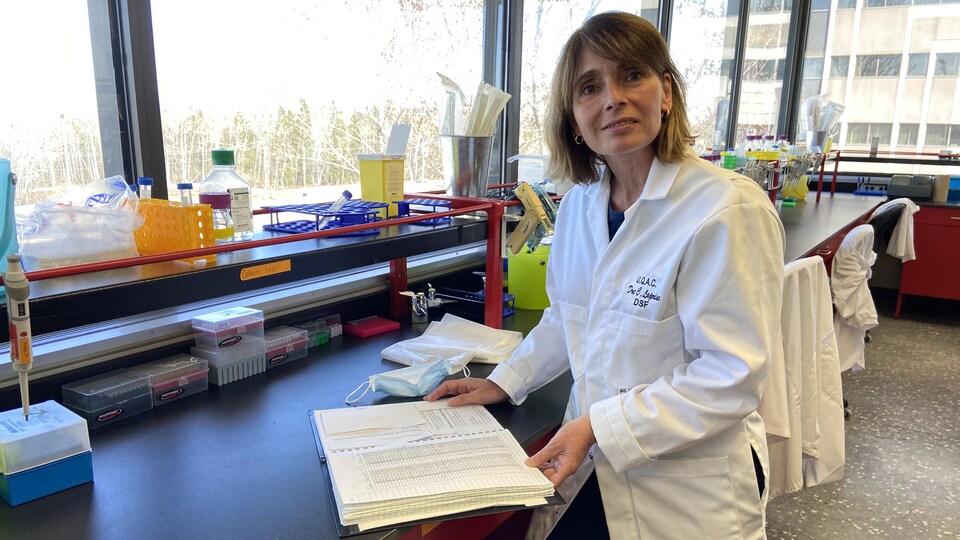A team of researchers from the University of Quebec at Chicoutimi (UQAC) wanted to know if some people are genetically more prone to have a severe form of COVID-19.
Research advances were presented to experts gathered for 89at Acfas congress.
The goal is to identify biomarkers by simple gargling and develop predictive tools explanation of the master’s student inUQACWilliam Bourumeau.
” All of this allows us to determine the diversity and sensitivity of individuals to the same virus and to be better equipped to target the most vulnerable groups and respond more effectively. “
If the data is credible, William Bourumeau thinks his project could make it possible to see future risks and plan ways to better protect the most vulnerable people.
His research was based on 300 samples, two-thirds of which were from people who tested positive for COVID-19.
So far, only about twenty samples have been analyzed.
Pilot studies show that it is possible to determine the microbiome of the respiratory tract by gargling, but more testing is needed to determine who may be more susceptible. [de développer des complications liées à la COVID-19]report of the young researcher.
Unique biobank
The work of researchers fromUQAC has facilitated access to unique data in Quebec thanks to COVID-19 biobank.
Some of the samples are collected and stored in Saguenay-Lac-Saint-Jean and this allows the region to prove itself to the scientific world.
The particularity here is actually the follow-up of the participants. In Montreal, there are many participants, but they find it difficult to follow up because people are recruited to the hospital and it is more difficult to contact them again afterwards. Here, we recruit outside CIUSSS and people, as with all of our research projects, are very generous with their time, participate, return and adhere to our projects, which means we have valuable follow-up supports the professor of basic sciencesUQACCatherine Laprise.
The results of the predisposition study to complications associated with COVID-19 may be fully available within one month.
Source: Radio-Canada
